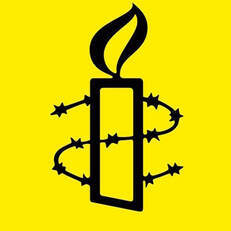Amnesty
 Amnesty and forgetting. When an amnesty is granted, does this mean that wrongs from the past are forgotten?
Amnesty and forgetting. When an amnesty is granted, does this mean that wrongs from the past are forgotten?The word amnesty has its origins in the Proto-Indo-European (PIE) root men-(1) (to think) and Greek mnaomai (I remember). Greek amnestos (forgotten, forgetful) is from Greek a- (not) + mnestis (remembrance); that is, ‘not remembering’.
The word amnesty is related to the word amnesia (loss of memory) which came to English in 1786 from Greek amnesia (forgetfulness, not remembering) and the PIE root men-(1).
Greek amnestos was coined around 400 BCE in Athens to help society recover from a civil war. A similar law related to ending years of sectarian civil conflict was enacted in Scotland in 1560 stating that “a law of oblivion shall be established.” The Treaty of Westphalia (1648) which ended the religious conflicts of the Thirty Years War in Europe called for an amnesty in which particular atrocities “shall be bury’d in eternal Oblivion.”
The English word amnesty (a ruling authority’s pardon of past offenses), from the 1570s, comes from 16th century French amnistie (an intentional overlooking) and Latin amnestia and Greek amnestia (forgetfulness of a wrong). In particular, amnesty usually refers specifically to pardons or offers of pardon for a class of offenses against a government.
It would seem that such ‘forgetting’ would be easier said than done especially if you or those close to you had suffered injustices. How do you forget a trauma? You don’t.
A recent book suggests two ways of describing such forgetting: forgetting as “true forgetting” (e.g., ‘time heals all wounds’) and forgetting as “forgetting about” (e.g., forgetting about revenge or retribution following conflict or trauma). The latter, ‘forgetting about’ seems related to the laws passed by governments so that they or their citizens do not become locked in decades or generations of conflict; for example, “the willed collective amnesia [that] facilitated Europe’s astonishing recovery after World War II” (Francis, 2023). Another option are Truth and Reconciliation Commissions (e.g., South Africa, Canada): tell the truths about what happened and then address reconciliation activities.
Amnesty International was founded in 1961 to call attention to the plight of prisoners of conscience.
Reference: Online Etymological Dictionary, https://www.etymonline.com/
Francis, G. (2023, March 9). The dream of forgetfulness: Two recent books build on an insight…that to live, it is necessary to forget. [Review of the book A primer for forgetting by L. Hyde]. The New York Review of Books, https://www.nybooks.com/articles/2023/03/09/the-dream-of-forgetfulness-primer-for-forgetting-lewis-hyde
Published on April 02, 2023 10:38
No comments have been added yet.



